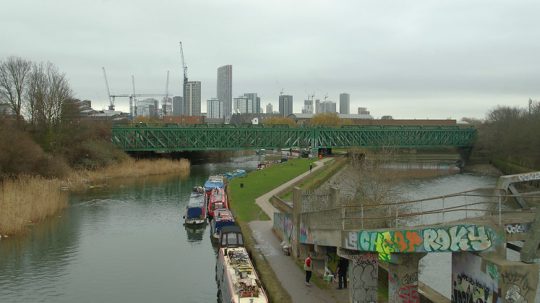Under the law, we are all protected as equals. Numerous governmental bodies and legal frameworks proudly expound this principle. But how does this actually translate into practice?
Disabled individuals increasingly struggle to receive the support they need, and are entitled to, as they transition into adulthood – becoming part of a larger fight to be seen, heard and advocated for – leaving them feeling far from able. In 2016, the United Nations found the United Kingdom guilty of grave and systemic violations of the UN Convention on the Rights of Persons with Disabilities (UNCRPD), with numerous deaths and other fundamental failings linked to policies implemented by the Department of Work and Pensions.
The Equality Act 2010 enshrines into law protections for all human beings, regardless of their creed, colour, gender, sexual orientation and disability, among other protected characteristics. It is a fundamental underpinning of major legislative frameworks, both domestically and internationally.
There is no one-size-fits all definition for what constitutes a disability. However, the law in the United Kingdom states that a disability is the following: a physical or mental impairment that has a substantial, long-term adverse effect on one’s ability to participate in normal day-to-day activities. Many disabilities are hidden, which makes an already stigmatised and sensitive topic more difficult to discuss.
The system is not only marginalising disabled people, it’s forgetting them
One billion people, or 15% of the global population, have a disability. 14 million people in the United Kingdom are disabled, with over a quarter living in poverty, and almost twice as likely to be unemployed. One would think that given the sheer number of people who may have additional needs, there would be enough adequate safeguards in place… yet, so many innocent people fall through the cracks. This is due, in part, to the inadequate funding of social services from local authorities (of which an increasing number are becoming bankrupt). Millions of people are being cut from social services, with nearly one in five English council leaders saying they are likely to declare bankruptcy. Local councils received a 40% funding cut between 2009/10 and 2019/20. But this is just the beginning…
For a child between the age of 5 and 15, their parent/main carer will need to speak to a teacher or Special Educational Needs (SEN) coordinator (SENCo), which could lead to the production of an Education, Health and Care Plan (EHCP) outlining the legally required support a disabled child is entitled to. However, not all schools are capable of providing some of the additional specialised support a disabled child may need. This can isolate a child and their family, and even prevent the child from receiving an appropriate education altogether, during such formative years. In June 2022, the Department of Education signed a contract with consultancy firm, Newton Europe, to target at least a minimum 20% reduction in the issue of new EHCPs in 55 local councils.
A child with a disability is more likely to be bullied
Statistically speaking, a child with a disability is more likely to be bullied, experience some form of abuse, and live in poverty in comparison to their able-bodied counterparts. 36% of children with special educational needs have experienced frequent bullying compared to 25% of children with no additional needs (Anti-Bullying Alliance 2021). Some children with a disability are unable to go to school altogether, leaving parents and carers stranded and unsure what to do. In a way, it is its own death sentence – with children failed by the system before they even have an actual chance.
This is a story heard all too often by Family Fund, the UK’s largest charity which provides vital grants and resources to disabled and/or seriously ill children from low-income backgrounds. They strive to provide equitable access to opportunities for all children, to help aid them in experiencing a ‘normal’ childhood, like going on holiday, riding a bike, playing in the garden, the list goes on. Family Fund, rather uniquely, also operates the “Your Opportunity” programme, in which grants are awarded to individuals with additional needs who are 18-24.
There are numerous commendable charities who offer support to children and their families. However, what happens when the child is no longer a child under the eyes of the law – when they are no longer “cute”, but rather a “problem” and simply another number on the ever-growing list of those unemployed and/or receiving a government benefit?
The government, rather unfairly, places the blame on the disability
This difficult and often uncomfortable question comes off the recent tails of the current government’s hard, strong-fisted push to reduce the number of people currently receiving government benefits on the basis of growing the workforce and supporting the economy. What people fail to realise is that there are currently not enough jobs that disabled people would be able to undergo due to accessibility barriers. It is not a problem of too many people not wanting to work, but rather too many who have been made unable to work as a result of a cruel, ableist point of view.
The government, rather unfairly, places the blame on the disability and the individual instead of understanding the larger issue. It also tries to restrict support at every stage in the process. For example, the Personal Independent Payment (PIP) is a welfare benefit created to help working age people who have a health condition or a disability with additional living costs.
Disabled people are more likely to require additional equipment, therapies, and support, none of it free. It costs more to simply live for a person with a disability compared to their counterpart, solely due to a condition they did not choose to have and cannot change. Approximately 41% of applicants are awarded PIP when submitting a claim for the first time; approximately 70% of applicants are successful on appeal.
The government may profess its commitment to equal rights and respecting the welfare and dignity of all its citizenry. However, it has its favourites out of an ableist bias. In 2024, no one should be made to feel less able or marginalised. We’re disabled and just like any other person in our society, we deserve to be heard.
This article has been dedicated to Margaret Cousins: We strive to be your living legacy.




